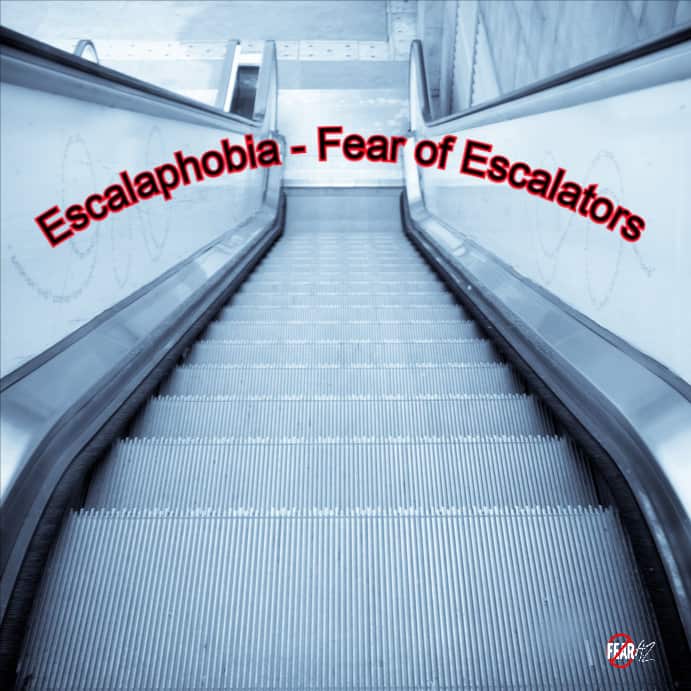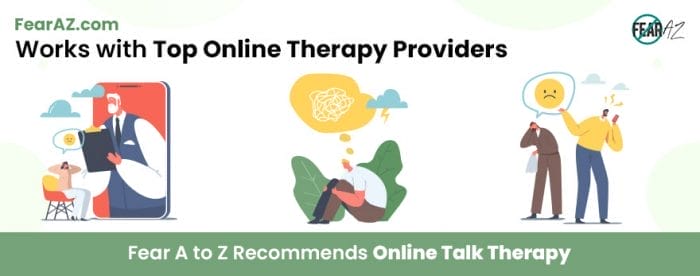Share This Article
Escalators: Fun for Children, Scary for Others
Do you ditch the ease and convenience of escalators and take the stairs? Does the mere thought of stepping onto an escalator send chills down your spine? Your vision is fine and you don’t suffer from any disabilities, yet you cannot force yourself to step onto an escalator.
If this sounds like you, then you might be struggling with escalaphobia or the fear of escalators.
Dealing with any phobia is difficult. Not only can it restrict your daily life, but a phobia such as escalaphobia can create a barrier between you, your friends, and family members. The fear of escalators can force you to walk away from the group on several occasions. You may even find yourself avoiding shopping malls and metro stations.
However, don’t be discouraged. Like any other phobia, escalaphobia can also be treated.

What Are the Causes of Escalaphobia?
The fear of escalators is often associated with a number of other phobias that may gradually evolve into escalaphobia.
Related Phobias
Bathmophobia, or the fear of stairs and slopes, is often connected with escalator phobia. In bathmophobia, people are afraid of a slope or a flight of stairs, even when they do not need to climb up or down.
Climacophobia, or the fear of climbing, is also associated with the phobia of escalators. Those with climacophobia are comfortable being around stairs or slopes, but they often become terrified when they are required to climb them.
Other connected phobias include acrophobia or the fear of heights and illyngophobia, the fear of vertigo.
Previous Traumatic Experiences
Many phobias are known to be triggered by the negative experiences of the past. This is also true for escalaphobia.
You may once have had your shoelace stuck in an escalator or perhaps you slipped while getting on or off the escalator, causing you to lose your balance. People may even lose their balance on the escalator when the steps and the handrails are mistimed. Being exposed to such situations increases the risk of developing a phobia of escalators.
Another factor that can lead to someone developing escalaphobia is the false belief that the hidden machinery below the stairs moves quicker than one’s normal walking pace. This false assumption can lead someone to fear they are moving up or down too fast and might get thrown off.
Other Triggers
Surprisingly enough, the series of negative experiences mentioned above need not even have happened to you for you to develop escalaphobia.
If you witnessed such disastrous situations in person or even on TV, or if a parent or close relative has a history of the same fear, it puts you at higher risk of developing escalaphobia.
Pre-existing conditions such as vertigo or sensory issues such as lack of depth perception can also worsen your escalaphobia.
In some cases, the continuous motion of the escalator steps can also be a central factor in developing a fear of escalators.
Symptoms of Escalaphobia
Intense fear, an obvious symptom of escalaphobia, may cause you to avoid coming into contact with escalators. And when confronted with an escalator, you may experience various physical and mental/emotional symptoms.
Mental/Emotional Symptoms
● Fear of losing control or fear of failing to maintain control
● Fear of passing out
● Fear of dying
● Fear of harm or illness
● Feeling sad or hopeless
● Feeling guilt or shame
● Withdrawing from others
● Confusion or inability to concentrate
● Feeling disconnected
● Anxiety
● Feeling panicked
Physical Symptoms
● Sweating
● Shortness of breath or difficulty breathing
● Trembling
● Nausea
● Hot flushes or chills
● Rapid heartbeat
● Feeling faint
● Chest ache or tightness in the chest
● Headaches and dizziness
● Numbness
● Dry mouth
● Wanting to urinate
● Ringing in the ears
● Hyperventilating
● Difficulty breathing
● Increased blood pressure
How to Treat Escalaphobia
Take this phobia seriously. Failing to seek treatment can sometimes lead to anxiety and depression in other areas of your life as well. Learning how to deal with such irrational fears is important if you want to overcome your fear of escalators.

Self-Help
Acceptance is the first step towards treating any phobia. Acknowledging there is a problem is important before you take the next steps. It’s also important to remember that there is nothing embarrassing about having a phobia. A lot of people suffer from various kinds of phobias.
Seeking professional help for your escalator phobia is also important. However, there are ways in which you can address some of the associated symptoms on your own. For example, relaxing activities like yoga and meditation are known to help relieve the symptoms of phobias.
Professional Help
When seeking professional treatment, your therapist will typically first try to identify the root of the fear of escalators, so they can develop a treatment plan.
If the root cause is a lack of balance or perception, then training or therapy for learning to balance body weight better would be recommended. If there is an issue with eyesight, an eye care professional can suggest the necessary visual aids to overcome this problem.
As with all types of phobias, gradually desensitizing yourself to the trigger plays a major role in dealing with escalaphobia. Confronting the feared object or trigger gradually and in a controlled environment can significantly help in overcoming escalaphobia.
A professional psychotherapist may also employ well-known therapies to treat phobias such as hypnotherapy, neuro-linguistic programming, and cognitive behavioral therapy.
Dealing with Escalaphobia
Even though elevators and stairs are always available as alternatives, that doesn’t mean you should ignore the issue. The goal is not to eliminate the trigger but to make it ineffective.
Have faith in yourself and trust the process. While none of these escalator phobia treatments come with a guarantee that your phobia will be cured, they do promise a high rate of improvement.
Apart from the medical treatment, what matters is your attitude toward dealing with your phobia. Don’t expect overnight results. It will take time, patience, and persistence on your part.
Conclusion
All machines, including an escalator, are susceptible to malfunction. No activity can ever be entirely risk-free, not even walking along the sidewalk. So, while fear of escalators is understandable, don’t let it limit you from living your best life.
Even if escalaphobia may seem silly or unrealistic, take your phobia seriously. If left untreated, phobias can result in major behavioral issues as well as mental distress.
Through self-help or with the help of a professional, you won’t have to limit the pace of your life. The time has come to learn how to manage your escalaphobia more effectively.




